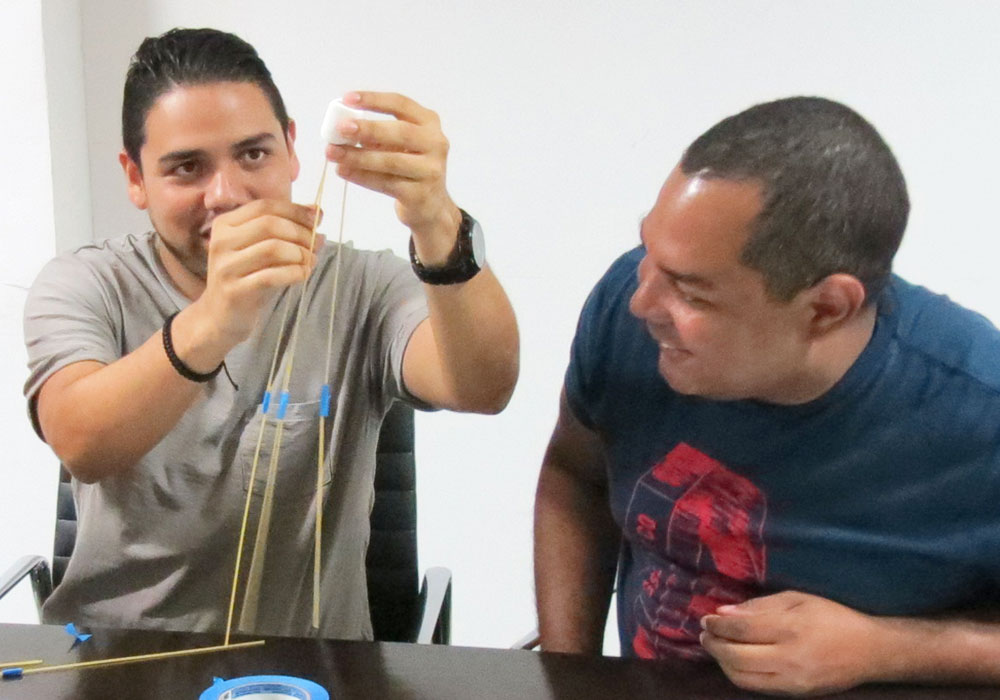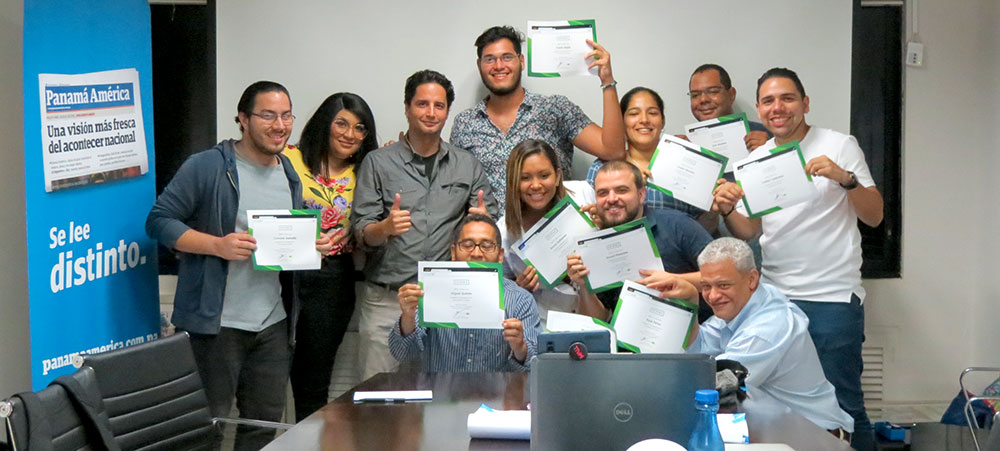A couple of months ago, I was asked to organize and teach a UX Workshop for the team of designers from the biggest newspaper here in Panama. Well, it was more of an intense course: we worked for nine days discovering the different aspects of UX Design, taking some tips and tools from both Design Thinking and Google Design Sprints.
The group was very enthusiastic and very well prepared, a mix of print newspaper designers, designers from marketing, web designers and developers with different levels of experience under their belt. To say that this was a serious anxiety fuelling challenge it’s a understatement, I had to really prepare for each class, provide them with interesting and useful information and techniques that they could immediately apply the next week on their jobs, and not just be an academic, theoretical presentation of concepts.
It couldn’t be boring or a powerpoint coma inducing endeavor… so, how to keep them motivated each Saturday morning?
Enter Cognitive Learning
“cognition. The mental action or process of acquiring knowledge and understanding through thought, experience, and the senses.”
The best experiences I have had as a student, has been with hand’s on, practice exercises; the ones that puts you in the pilot seat and challenge you to solve a problem. I’m not a psychologist, nor expert in this field, maybe I’m more attracted to these challenges because of my video gaming history, but the point is: whether it’s learning using the business case model developed by Harvard Business School, or building concepts with blocks in Lego Serious Play seminars or even the “bridge building” activity they always give you in project management courses, they have a way of grabbing your attention and elevating you to a zen like state where you laser focus on finding a solution to the puzzle given.
So, obviously, I mimicked that for my teaching experience. And that’s a little bit hard, since you have so many things to say and so many slides, graphs and information you want to communicate to your group. But at the end, the best way for them to learn about UX is working in UX, so the class turned into a laboratory where they had to continuously work on problems different fictitious companies had with their digital experiences.

We had a heavy emphasis in research: interviewing, empathising and collecting data from their users, and then analysing and presenting this data in ways they could collaborate with their teams. They had lots of fun doing card sorting exercises, mapping and sketching their apps, and finally they began to form groups and work together on designing a functional prototype of a project they could propose to their supervisors.
The amount of material I had to research, summarise and prepare for each class was endless. The information and references will be a helpful resource for them from now on, but an invaluable tool for me as a UX Designer moving on after the teaching ended.

Trying to build something useful with all that spaghetti
I already knew about all we talked about during the nine week period, but in a very personal, “tangled” way of understanding. Let’s call it, a spaghetti understanding of the concepts (referencing the infamous spaghetti code some people have to work with). Having to put these ideas into words and logical, cohesive concepts so they could be easy communicated to other, was the real challenge for me. So I had to learn it all over again, to be able to actually explain it, to be able to create activities where they could put them into practice, to be able to share them.
And that’s the best UX design workshop you can take right now: the one you have to teach yourself. Being forced to research, study, analyse, write, design, talk and share these ideas, it’s also a way of cognitive learning, so you could say I was a subject of my own teaching methodology, and so can you. So, instead of stressing out about the next expensive UX conference you can’t travel to this year, try sharing your experiences with other people, and hopefully with me; I promise you we will all learn a lot, specially you.

